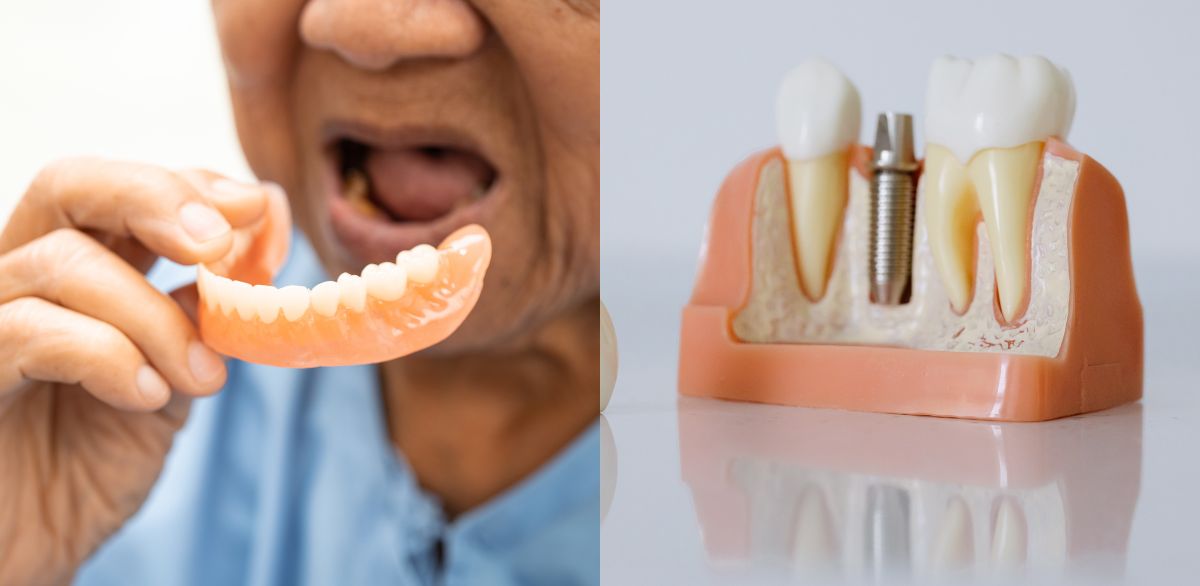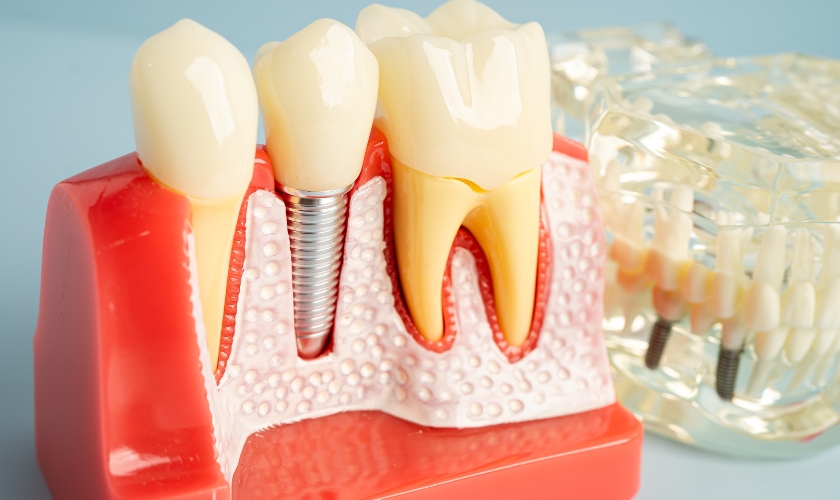
When it comes to replacing lost teeth, dentures and dental implants are two popular options. While both can restore your smile and improve functionality, they differ significantly in how they affect your oral health and daily life. One key area where they diverge is their impact on your sense of taste. In this guide, we’ll explore why dentures can alter your taste perception while dental implants don’t have the same effect.
How do Dentures Affect Taste?
Dentures are a common solution for individuals with missing teeth, but they can affect more than just your appearance. One often overlooked issue is how dentures can influence your ability to taste food. Here’s why:
- Coverage of the Gums: Traditional dentures cover a large portion of your gums, which play a role in your sense of taste. The soft tissues in your mouth, including your gums, contain taste receptors that help you enjoy the flavors of your food. Dentures can interfere with these receptors, reducing your ability to fully experience taste.
- Reduced Sensitivity: Dentures can create a barrier between your tongue and the roof of your mouth, where many taste buds are located. This decreases the sensitivity of your taste buds, leading to a dulled sense of taste.
- Material Interference: Most dentures are made from acrylic or metal, materials that may affect the natural flavors of food. For some individuals, the material itself may even leave a metallic or rubbery taste, further dulling the overall taste experience.
- Fit and Stability: Ill-fitting dentures can move around in your mouth while eating or speaking, creating discomfort and potentially altering your ability to enjoy food. This can also affect your ability to chew properly, which plays a role in releasing the full flavor of food.
Dental Implants and Taste: A Better Solution
On the other hand, dental implants Grants Pass function more like your natural teeth. Here’s why they don’t interfere with your sense of taste:
- No Coverage Over the Gums: Dental implants are placed directly into the jawbone, which eliminates the need for a bulky prosthetic covering the gums. This allows your gums and taste buds to remain free, ensuring that you can taste food as you would with natural teeth.
- Natural Feel and Function: Implants act just like regular teeth, with a crown that sits above the gumline. This provides a more natural feel, allowing your tongue to make contact with the roof of your mouth without any obstructions, which helps preserve your taste sensitivity.
- No Material Interference: Since dental implants are made of titanium, a biocompatible material, they don’t alter the taste of food. The crown that sits on top of the implant is typically made from porcelain or another similar material, which doesn’t interfere with the taste of your food.
- Improved Chewing Ability: With dental implants, you can chew food more effectively, which helps release the natural flavors. Unlike dentures, which may slip or cause discomfort, dental implants provide a stable foundation for chewing, improving your overall eating experience.
The Benefits of Choosing Dental Implants Over Dentures
If you’re concerned about how dentures might affect your sense of taste, dental implants offer a number of additional advantages that may make them a better choice for you:
- Better Comfort: Since dental implants are rooted in the jawbone, they don’t shift around like dentures can. This means you won’t have to worry about discomfort or potential slipping while eating, giving you the confidence to enjoy your meals without distractions.
- More Natural Look and Feel: Dental implants closely resemble your natural teeth, not just in function but also in appearance. The porcelain crowns used in implants look and feel like real teeth, offering a seamless solution that enhances both your smile and your comfort.
- Long-Lasting Solution: Dental implants can last many years or even a lifetime with proper care. Unlike dentures, which often require replacement or adjustments, dental implants provide a more permanent solution to missing teeth.
- Better Oral Health: Dental implants also promote better oral health since they integrate with the bone in your jaw, preventing bone loss that can occur when teeth are missing. This helps maintain the structure of your face and keeps your mouth healthy.
For individuals in Grants Pass considering tooth replacement options, choosing dental implants can offer long-term benefits that dentures may not provide. With dental implants, you won’t have to worry about taste interference or discomfort that can come with traditional dentures.
Tips for Maintaining Your Taste Sensitivity
Whether you have dentures or implants, it’s important to take good care of your mouth to preserve your sense of taste. Here are some tips for maintaining taste sensitivity:
- Maintain Oral Hygiene: Regular brushing and flossing are essential for keeping your gums and teeth healthy. This helps ensure that your taste buds stay free of bacteria or buildup that could interfere with your ability to taste food.
- Stay Hydrated: Drinking enough water throughout the day can help maintain saliva production, which is important for taste perception. A dry mouth can dull your sense of taste, so keep hydrated to keep your taste buds in top condition.
- Avoid Smoking: Smoking can damage your taste buds and reduce your sense of taste over time. Quitting smoking or avoiding it altogether can help keep your taste buds functioning properly.
- Visit Your Dentist Regularly: Regular dental checkups ensure that your dentures or implants are in good condition. For dentures, this means ensuring a proper fit to avoid discomfort and interference with taste. For implants, it ensures they remain securely in place and function properly.
Choosing between dentures and dental implants involves many factors, but if preserving your sense of taste is important to you, dental implants may be the better option. While dentures can interfere with your taste buds by covering the gums and creating barriers, dental implants allow for a more natural experience, letting you taste food as you would with your natural teeth. Whether you’re looking for better comfort, improved taste, or long-term durability, dental implants offer an excellent solution for many individuals.



